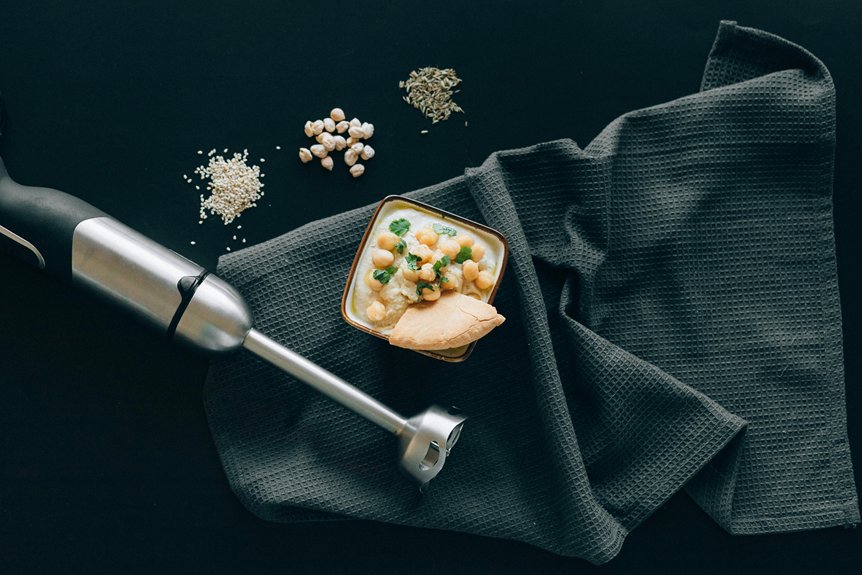
When it comes to disposing of used olive oil, it’s essential to reflect on the environmental impact of your choices. Pouring it down the drain can lead to plumbing issues and water pollution. Instead, there are practical methods for safe disposal that you might not have thought about. Learn how to manage both small and large quantities effectively, and discover creative ways to repurpose oil that can contribute to sustainability efforts.
Understanding the Environmental Impact of Improper Disposal
When you toss used olive oil down the sink or into the trash, you might not realize the environmental consequences of that seemingly harmless act. Olive oil can clog pipes, leading to costly plumbing issues and pollution in water systems. When it enters landfills, it can leach harmful substances into the soil and groundwater, affecting local ecosystems. This waste contributes to the growing problem of contamination, threatening wildlife and plant life. Instead of discarding it improperly, consider recycling or repurposing your used olive oil. Many communities have recycling programs that accept cooking oils. By taking these steps, you not only protect the environment but also contribute to a more sustainable future, allowing you to embrace a more liberated lifestyle. Additionally, using high-quality olive oils like Gundry MD Olive Oil, which is rich in polyphenols, can further enhance the health benefits of your cooking while ensuring responsible consumption.
Signs Your Olive Oil Is No Longer Good
Improper disposal isn’t the only concern when it comes to olive oil; knowing when your oil has gone bad is just as important. First, check for off smells. If your olive oil smells rancid or has a musty odor, it’s time to let it go. Next, taste it. If the flavor is bitter, sour, or just plain off, don’t use it. Also, look for changes in color or cloudiness; fresh olive oil should be vibrant and clear. Finally, pay attention to the bottle’s expiration date; even high-quality oils have a shelf life. Trust your senses—if something seems off, it probably is. Using bad oil can ruin your dishes and potentially harm your health, so stay vigilant!
Small Quantities: Safe Disposal Methods
If you’ve got a small amount of used olive oil that needs disposing of, there are several safe methods to contemplate. One easy way is to pour the oil into a sealable container, like a jar or bottle, and throw it in the trash. Just make sure it’s tightly sealed to prevent leaks. Another option is to mix the oil with absorbent materials, such as cat litter or sawdust, before tossing it. You could also consider composting if the oil is minimal and plant-based. Just remember, never pour it down the drain or toilet, as it can clog pipes and harm the environment. By choosing these safe disposal methods, you’re making a positive impact on your community and the planet!
Larger Quantities: Proper Disposal Techniques
Disposing of larger quantities of used olive oil requires a bit more care to guarantee safety and environmental responsibility. First, don’t pour it down the drain; this can clog pipes and harm aquatic life. Instead, consider storing the oil in a sealed container. Check with your local waste management facility—they often have specific guidelines for hazardous waste disposal. Many communities offer collection events for cooking oils, making it easier for you to dispose of it correctly. If you’re part of a restaurant or large kitchen, look into commercial recycling services that handle cooking oil. By taking these steps, you contribute to a cleaner environment while liberating yourself from the hassle of improper disposal.
Recycling: How to Repurpose Used Olive Oil
Once you’ve safely disposed of larger quantities of used olive oil, you might be wondering what to do with the smaller amounts left over. You can repurpose that oil in various creative ways! Consider using it as a natural moisturizer for your skin or a hair conditioner. Mix it with essential oils for a soothing massage oil. If you’re into crafting, create homemade soaps or candles by incorporating the oil for added fragrance. You can also use it to lubricate squeaky hinges or condition wooden furniture. By repurposing your used olive oil, you not only reduce waste but also release your creativity. So, get inventive and transform that leftover oil into something useful and delightful!
Composting: Can Olive Oil Go in Your Compost Bin?
Have you ever wondered whether you can toss olive oil into your compost bin? While it might seem like a natural choice, it’s best to avoid adding olive oil directly to your compost. Although it’s organic, the high fat content can create an imbalance in your compost pile, attracting pests and leading to odor issues. Instead of composting, consider small amounts of oil as a treat for worms in a vermicomposting setup, where they can break it down effectively. If you have larger quantities, it’s better to explore other disposal options. By choosing the right method, you’ll help maintain a healthy compost environment and keep your gardening efforts blissfully liberated from complications.
Local Disposal Options: Find Recycling Centers
When it comes to getting rid of olive oil, finding a local recycling center can be your best bet. Many communities have designated facilities that accept used cooking oils, making it easy to dispose of them responsibly. Start by checking your city or county’s waste management website for information on nearby centers. Some grocery stores and restaurants might also participate in recycling programs. Don’t forget to call ahead to confirm what they accept. By choosing a recycling option, you’re not only keeping your environment clean but also contributing to sustainable practices. So, take that extra step and find a local recycling center today—your planet will thank you!
Educating Your Community on Oil Disposal
While many people recognize the importance of proper oil disposal, not everyone knows how to do it. Start by sharing your knowledge with friends and family; host a small gathering to discuss the environmental impacts of improper disposal. Create flyers or social media posts that highlight local recycling options and safe disposal practices. Encourage community events that focus on eco-friendly habits, like clean-up days or workshops on sustainable cooking. Partner with local organizations to spread the word even further. Remember, education is empowering. By teaching others, you’re not just helping the environment; you’re fostering a community that values responsible practices. Together, you can inspire change and guarantee everyone knows how to dispose of olive oil safely.
Tips for Reducing Olive Oil Waste in Your Kitchen
To minimize olive oil waste in your kitchen, start by measuring out the amount you need for each recipe instead of pouring directly from the bottle. This simple habit prevents overuse and helps you become more mindful of your ingredients. Consider repurposing leftover oil in salad dressings or marinades to guarantee nothing goes to waste. Store your olive oil in a cool, dark place to prolong its shelf life and prevent spoilage. Additionally, clean out your oil container regularly to avoid contamination. If you notice any sediment, filter it out before use. Finally, educate yourself on best practices for using olive oil efficiently, and share your knowledge with friends. Together, you can create a more sustainable kitchen environment.





